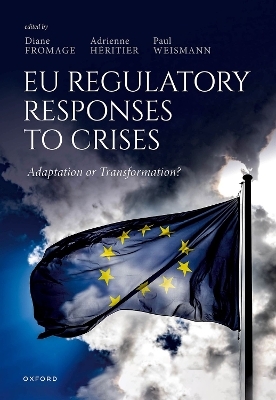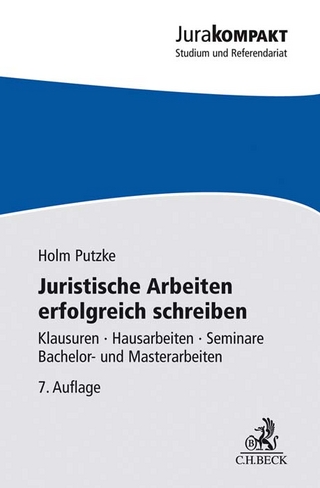
EU Regulatory Responses to Crises
Oxford University Press (Verlag)
978-0-19-891381-8 (ISBN)
- Noch nicht erschienen (ca. Januar 2025)
- Versandkostenfrei
- Auch auf Rechnung
- Artikel merken
The past years have seen numerous crises from the 2007-2008 financial crisis to the migration crisis and the COVID-19 pandemic. These crises have significantly impacted EU policy in numerous areas including the Economic and Monetary Union, financial regulation and supervision, health policy, state aid control, energy policy, migration policy, and foreign and defence policy. As a result of these crises, EU rule-making has developed in various ways. Some developments have had an institutional dimension in that they concerned the actors involved in rule-making, as exemplified in the introduction of instruction rights of EU bodies vis-à-vis national authorities or the introduction of reverse (qualified) majority voting in the Council. But they also concerned the shape or nature of rules, where we have seen the increasing use of Regulations (as opposed to Directives) and of soft law instead of legally binding rules. The substance of existing rules was also reconsidered, resulting, for instance, in the deviation in practice from the Dublin system as regards the distribution of refugees, in the EU indebting itself on a considerable scale in the wake of the pandemic, and in the boosting of foreign and defence policies as a result of the war in Ukraine.
EU Regulatory Responses to Crises examines and compares these developments from a legal and a political science perspective. It analyses the measures taken, successful or not, to save banks, to ensure a fair distribution of migrants across EU Member States, or to support the acquisition of vaccines, for example. This book draws a comprehensive picture of the EU's regulatory toolkit in times of crisis, and its enrichment and refinement in reaction to new challenges.
Diane Fromage is Professor of European Law at the University of Salzburg and Deputy Director of the Salzburg Centre of European Union Studies. She is also an Affiliated Researcher at the Law Department of Sciences Po, Paris. She teaches EU institutional and Internal market law, as well as Economic and Monetary Union and Banking Union law. Prior to joining Salzburg, she was a Marie Sk?odowska-Curie Fellow at Sciences Po, Paris, and an Assistant Professor at Maastricht and Utrecht Universities. She has authored numerous contributions on Economic and Monetary Union, Banking Union, Democracy and Accountability within the EU. Adrienne Héritier is Emerita Professor at the Social and Political Sciences Department of the European University Institute (EUI) in Florence. She was a Director of the Max Planck Project Group for “Common Goods: Law, Politics, and Economics” in Bonn from 1999 to 2003. Her research focuses on European policy-making, comparative public policy, European decision-making processes, theories of institutional change and deregulation and re-regulation and new modes of governance. She has been awarded a doctor honoris causa at the Université Catholique de Louvain-La-Neuve. Paul Weismann is Associate Professor of European Law at the Centre of European Union Studies at the University of Salzburg. He has engaged in teaching and research activities at various universities/research institutes and has published on various topics in the field of EU law, public international law and public law, most prominently on institutional and material questions relating to EU banking law and to the Economic and Monetary Union.
| Erscheint lt. Verlag | 28.1.2025 |
|---|---|
| Verlagsort | Oxford |
| Sprache | englisch |
| Maße | 171 x 246 mm |
| Themenwelt | Recht / Steuern ► Allgemeines / Lexika |
| Recht / Steuern ► EU / Internationales Recht | |
| ISBN-10 | 0-19-891381-8 / 0198913818 |
| ISBN-13 | 978-0-19-891381-8 / 9780198913818 |
| Zustand | Neuware |
| Informationen gemäß Produktsicherheitsverordnung (GPSR) | |
| Haben Sie eine Frage zum Produkt? |
aus dem Bereich


